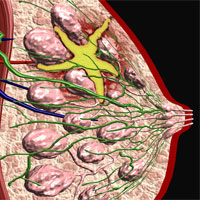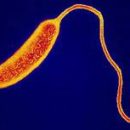Improving the effectiveness of the treatment of patients with malignant neoplasms is one of the most relevant problems of modern oncology. The main methods of oncopathology therapy (surgical intervention, chemo and radiation therapy) are directed only to the elimination of the tumor, but not capable of removing all tumor cells from the body . In recent years, it has been convincing that immune mechanisms play a significant role in the appearance of neoplasms long before their clinical detection and an equally important role in the body of the body after getting rid of the tumor.
Content

The occurrence of the tumor precedes and promotes the weakening of the immune oversight of the antigenic homeostasis of the body, and in the process of tumor growth, mechanisms ensuring that mechanisms also often develop «Accommodation» Tumor cells from the supervision from the immune system. In addition, the function of the immune system additionally has a negative impact of stress, anesthesia, surgical injury, chemotherapy, radiation therapy, age of patients, features of the postoperative period and other factors. All this makes it possible to conclude that it is possible to significantly increase the efficiency of the basic methods of treatment of oncopathology using therapy with immunomodulatory drugs.
Despite the difficulties and the availability of even unresolved issues, immunotherapy has several advantages over chemical and radiation therapy. This type of treatment acts on the cells of the neoplasms indirectly — through the activation of the immune system as a whole and directly — Through the activation of the functions of its killer cells, without damaging the normal cells of the body. At the same time, the possibilities of immunotherapy in oncology can be limited in the case of a decrease in the immunocompetence of the patient, as well as the development of immunological tolerance in progressive growth of the neoplasm, which necessitates the need to remove the bulk of the main mass of tumor cells during the comprehensive treatment of patients with oncopathology.
Modern radiation and chemotherapy are the main methods of treating oncological patients. In order to increase the efficiency of antitumor therapy, increasingly aggressive radiation and chemotherapeutic treatment schemes are developed and applied. However, the intensification of the main treatment leads to the development of pronounced functional and quantitative disorders in the immune system, which are implemented by autoimmune, allergic and infectious complications. Developed complications, in turn, impede the main treatment in optimal mode, reducing its effectiveness and worsen the quality of life of patients
Therefore, at the present stage, much attention is paid to the state of the immune system of cancer patients and the use of immunocorrorizing therapy in the process of complex treatment of patients
In the complex therapy of oncological patients, the most appropriate is the use of immunomodulators — medicines that in therapeutic doses act mainly on the modified indicators, normalizing the main functions of the immune system
In recent years, a peptide preparation of GA-40 is quite effective in cancer practice. Unlike hormones, GA-40 has an immunoregulating effect on the cells of the immune system. The independent nature of the action of the drug creates a certain advantage compared to the use of hormones and avoids the exacerbation of cancroxy inflammation, reduce the suppression of antitumor immunity. This circumstance is of exceptional importance for immunocorrection in oncological patients. GA-40 has a wide range of regulatory action, and its clinical efficacy is based on the ability to partially or completely restore the indicators of T-cell, phagocytic immunity, to normalize the products of pro-inflammatory mediators, to ensure the correction of the redox antioxidant system and lipid metabolism.
The use of adequate immunocorrorizing therapy helps to prevent postoperative complications, eliminate side effects of chemo-treatment, resulting in a complete treatment program and improving the quality of life of cancer patients.
The diversity of positive clinical and immunological effects, the absence of contraindications should contribute to the wider introduction of these drugs into practical oncology for the correction of immunodeficiency states, the stimulation of leukopopower, eliminate the side effects of radiation and chemotherapy, increasing the overall and unconditional survival of patients with oncopathology, improving the quality of their life.









